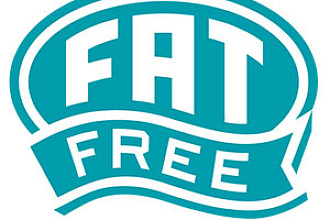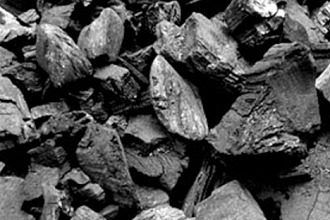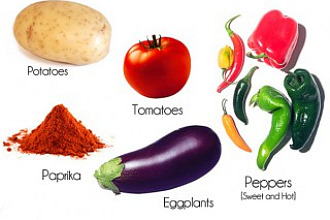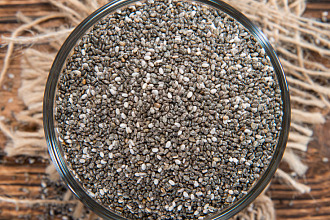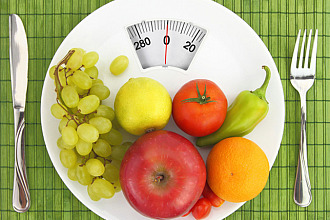Do all children need cow's milk to grow strong bones and teeth? Is cow's milk good for everyone? Problems from milk drinking involve iron deficiency, anemia, allergies, early heart attacks, chronic cramps, and diarrhea. Over thirty million Americans are allergic to milk because of low levels of an enzyme called lactase in their intestines. The body will not digest lactose milk sugar, unless sufficient amounts of lactase are present. At five years old the amount of lactase begins to lessen and by adulthood many lose the ability to produce lactase. Eighty percent of Japanese, Filipinos, and Arabs have lactose intolerant reactions. Seventy to eighty percent of American blacks and Jewish adults cannot handle lactase digestion.
Cow's milk is nature's prescription for calves. Human breast milk is the ideal food for infants. Jane Brody, in her "Personal Health" column in the New York Times, proclaims the advantages of breast-fed babies. Cow's milk has four times more protein than human breast milk. This high protein, high fat content may be a step toward "over nutrition." As a rule, babies raised on cow's milk will weigh more than comparable age breast-fed babies. Breast-fed babies reach their optimum growth, but at a more desirable steady pace. Dr. William Stini, an anthropologist at the University of Arizona, explains "maximization of growth should not be confused with optimization."
Along with accelerated growth, cow's milk can cause digestive problems. Milk protein is 80% casein, which is harder for an infant to digest than the highly digestible whey protein which accounts for 70% of the protein in breast milk. Cow's milk protein is low in the amino acid cystine, which is essential to a newborn's diet, yet is high in the amino acid phenylalanine, which infants are unable to properly metabolize. Important antibodies are present in breast milk to protect the infant from infectious organisms. Doctors find that breast-fed babies have only a third as many serious illnesses as formula-fed babies during their first year of life. Breast milk is the perfect food for infants and is sufficient in essential nutrients until the time teeth begin to cut. Teeth cutting and saliva development indicate the presence of enzymes that enable the infant to digest starches. This age varies between six months and a year. Many allergies are the result of babies' immature digestive systems forced to improperly digest foods, which in turn causes flatulence, eczema, and other annoying symptoms.
The Committee on Nutrition of the American Academy of Pediatrics made the following statement: "It (cow's milk) is not an essential component of diet for everyone whose diet is otherwise adequate." If you don't get your calcium from cow's milk, what are the best sources? Calcium-rich plant foods include dark leafy greens, with 1 cup of collards higher in calcium than an equal amount of cows' milk. Almonds, broccoli, tofu, sesame seeds, and garbanzos are all good sources of calcium.
How much calcium do we need? The Food and Agriculture Organization and the World Health Organization of the United Nations recommends 400 to 500 mg. of calcium per day for adults, while the United States daily recommendation is 800 milligrams. Canada and England give 500 mg. as an adequate daily requirement. Malnutrition in the Third World countries is a result of insufficient calories rather than a specific vitamin or mineral deficiency. In a comparative study between the low calcium Bantu diet and the high calcium diet of Caucasians, Alexander Walker, head of the Human Biochemistry Research Unit of the South African Institute for Medical Research, found no evidence showing that calcium deficiency exists in humans. Even among populations that consume 400 to 500 mg. of calcium daily there are no major deficiencies.
Calcium malabsorption is more a problem in osteoporosis (bone loss) than of insufficient calcium. Doctor Morris Natelovitz, in his book Stand Tall: the Informed Woman's Guide to Preventing Osteoporosis, lists bone robbers and bone enhancers. Too much protein increases calcium excretion in the urine: Red meats especially promote excretion of calcium because of the acidic nature of the protein. The human body responds to acid overload by dissolving bone tissue as the body attempts to neutralize the acidic environment. The vegetarian's diet is low acid while meat diets are high acid.
Salt is a bone robber; 200 milligrams of salt per day causes no change is calcium excreted, but use of 1t (which is 2,000 milligrams of salt) shows increased calcium in the urine. Foods high in phosphorous—like soda pop and processed foods that contain phosphorous additives, are bone robbers because, in order to absorb calcium properly, the body needs a 2 to l ratio of calcium to phosphorous. The overuse of processed foods has put the phosphorous level much too high, whereby hampering the ideal calcium absorption. High sugar intake also increases calcium excretion. Stress, smoking, alcohol, and pollution in the environment are all associated with calcium excretion.
Bone enhancers include moderate exercise using the leg bones, such as walking, hiking, biking and also water drinking, vitamin D from the sunshine, dark leafy greens, and tofu. Vegetarians have stronger and denser bones than people whose diet is predominantly meat. At the age of 70, vegetarians have greater bone density than carnivores in their 50's.
The milk bubble has been popped. Cow's milk is the perfect food for calves. Breast milk is the perfect food for human infants. You can fulfill your calcium requirements from plant foods. The Chinese have depended on soybean products and leafy greens for good nutrition. American cows get their calcium from the same sources. Why not use these primary sources of calcium rather then secondhand from the cow. African nationals and black Americans consume less calcium than most Caucasians; and have less osteoporosis and greater bone density.
More is not necessarily the cure for calcium malabsorption. In studies based on the average American diet, it was found that bone destruction exceeds bone formation for 2 to 5 hours each day. What you assimilate is crucial to bone formation. Pay attention to your intake of animal protein, salt, coffee, sugar, soda pop, processed foods, tobacco, and alcohol. Exercise, drinking adequate water, sunshine, and eating calcium-rich plant foods are all aids to calcium absorption!
For more information contact:
Uchee Pines Lifestyle Center
30 Uchee Pines Road #75
Seale, Alabama 36875
Tel. 334-855-4764
www.ucheepines.org
Originally found here
Picture originally found here









